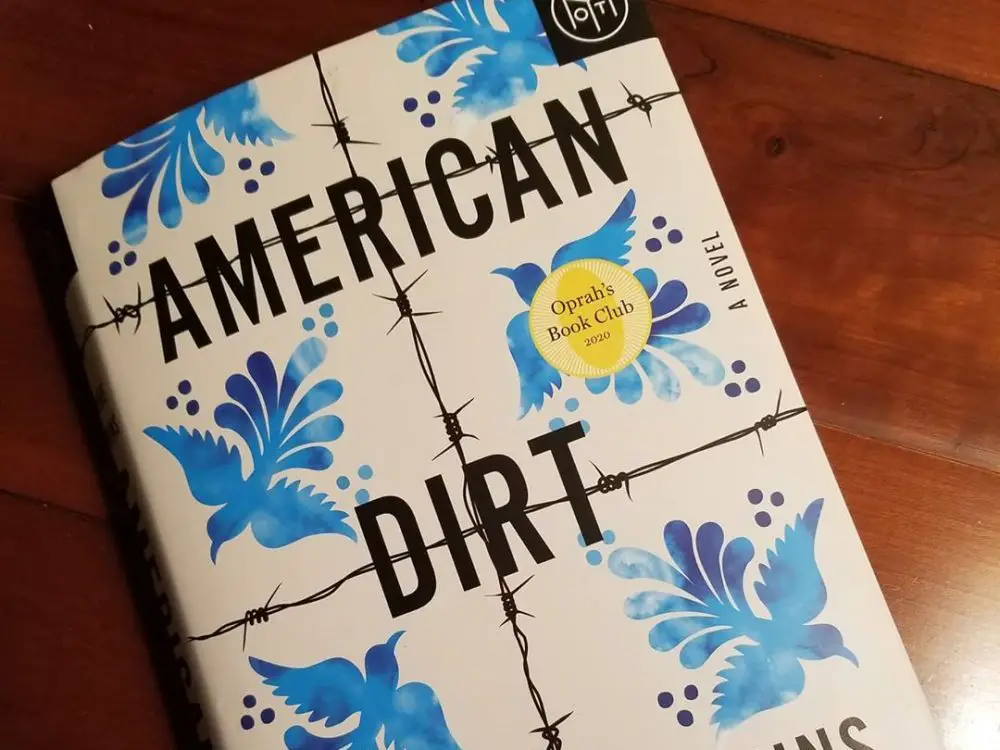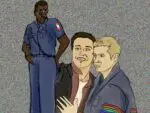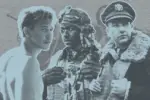March is Women’s History Month, but one woman isn’t exactly feeling uplifted. Jeanine Cummins is the author of “American Dirt,” and her book was Oprah’s latest book club pick. This country has been suffering from increased racial tension since Trump started his presidency, and “American Dirt” has caused a lot of controversy among the Latinx community, mainly with people of Mexican descent. It has even been referred to as trauma porn. The book has caused so much debate that Oprah decided to call a discussion with the Latinx community on “Oprah’s Book Club,” which is now on Apple TV.
Before I go on to talk about this matter further, I would like to state that I am not Mexican nor subscribe to any Latinx identity. However, this is a topic that touches on race, and as a writer, I’m passionate about bringing light to the injustices of American minorities, especially black people, which is the race I identify with.
This subject affects all races, especially minorities, and although I cannot speak for the Latinx community and their plights, I can speak on the topic of racism and how universally damaging it is to anyone that experiences it, specifically in America.
“American Dirt” is a story about Lydia Quixano Perez, a middle-class Mexican woman who owns a bookstore, is married to a journalist and has a son named Luca. When a drug lord starts to visit her shop, they become close; however, when Lydia’s husband decides to write an article on him, it comes with deleterious consequences, including his life. Lydia and Luca are forced to flee across the border.
Many magazines, newspapers and renowned authors gave the work rave reviews, such as the Los Angeles Times, The New York Times, People, Marie Claire, Kristin Hannah, Julia Alvarez, Stephen King and others; a big thing to note, however, is that none of them are Mexican.
'American Dirt' and the tradition of the moral parable https://t.co/vnpwNWOpRs
— Los Angeles Times (@latimes) January 31, 2020
I will admit that when I first heard of the book a couple of months ago, it grabbed my attention because I love crime and gangster novels. Whether it be the Italian mafia, African American gangs or Hispanic/Latino cartels, anything that involves organized crime intrigues me. However, as I started to do more in-depth research on the novel, the controversy started to rear its ugly head, and it seemed that the book was doing more harm than good.
What is Trauma Porn?
What is trauma porn and why is it so harmful to minorities in America? Trauma porn is when the plights and traumas of a culture or race are used for entertainment, and the story, in effect, diminishes their historical pain. It’s especially painful if it’s just to appeal to a whiter demographic rather than educate the audience on the actual problem.
An example of trauma porn is the increased amount of shows and movies coming out about African enslavement over the last decade. This was also around the time that being #woke became a trend due to the deaths of Trayvon Martin, Eric Garner, Sandra Bland and countless other black people who lost their lives to police brutality because of their skin color.
In comes “12 Years a Slave,” “Underground,” the “Roots” reboot, “Birth of a Nation,” “Free State of Jones,” “Belle” and many other films. Yes, most of these movies were great and encapsulate the story of being black in America. But as all these productions came out, black people began voicing their frustrations.
Even though some of these productions were enlightening and entertaining, it was also beginning to paint this picture that the only thing black stories have to offer is slavery, and that black history started with slavery, which has been proven countless times that that is furthest from the truth — despite what our American history teachers try to teach us.
After watching Oprah’s discussion on Apple TV, it’s clear that one of the biggest grievances critics had about the book was that Mexican stories shouldn’t only be defined by immigration, drug cartels and violence. Yes, these things can be part of their story, but let’s not reduce them only to those themes just because they make for a good read.
https://www.instagram.com/p/B9U4YQMg5O4/?utm_source=ig_web_copy_link
“When the publishing industry is 80% white, what I am really being asked to do is to make my stories more relevant to white people,” said Julissa Arce to Buzzfeed. Julissa Arce, Esther Cepeda and Reyna Grande are Mexican authors, journalists and activists. They went on Oprah’s show to not only debate about the book, but to inform Jeanine, Oprah and other naysayers on why there is such an uproar about it.
President of Macmillan Publishers, Don Weisburg, and Cummins’ editor, Amy Einhorn (who are both white), were also in attendance, mainly to defend Cummins and to “apologize” for their part in all of this, further proving their point.
“Cummins not only trivializes the shades of our identities and experiences but also attempts to recuse herself from fault in posturing from a perspective that is not her own,” wrote Alex Zaragoza on Vice. Her quote ties into the fact that Cummins acknowledged and identified herself as privileged through her physical attributes. Cummins pleaded her case by talking about the years of work she did at the border, interviewing families who have suffered and even trudging the trail herself.
Author Myriam Gurba, who was the first to publicly scrutinize Oprah and Cummins for this book, signed an open letter to Oprah to have it removed from the collection, along with at least 100 other writers, noted by The New York Times. However, during the discussion, Oprah made it very clear her stance on the conversation, formidably not backing down. She said, “Obviously I like the book, I chose it.”
Yet, sometimes stereotypes do play out for the better in an industry lacking in diversity. One example is Tyler Perry, who is known for his movies on a loud and obnoxious Southern matriarch. Some people feel they’re stereotypical, and some people find them funny and heartwarming.
What cannot be denied is that without Perry, jobs wouldn’t be created, actors wouldn’t have been recognized and a lot of black writers, directors and producers wouldn’t be part of media today. Yes, a lot of his stories are based on stereotypes, but in turn, they fueled other black writers to strive for something different, to put their story out there. Although the difference is Perry is black.
Oprah is right. This is a conversation that needed to happen because a lot of people don’t realize how one-sided and dense media is in America. Yes, there is a lot more diversity in the media. However, as a country, there still is a long way to go considering that the people who ultimately dominate media networks and publishing industries are white. Not to accuse all of them of prejudice, but it’s a simple fact that they only know how to cater to themselves and people like them, just like the Founding Fathers.
This conversation does need to continue; silence is just submission, and hopefully, Oprah stays true to her word about continuing this fight, since she is such a staple in American media. In the end, it all comes down to these three questions: Would you rather have someone else tell your story? Is “freedom of expression” actually free? Are you willing to pay the price for your words?
















